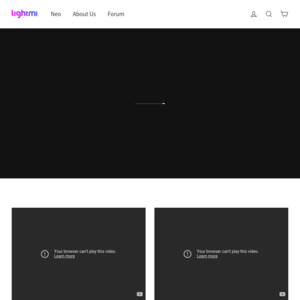Endless Possibilities: Connect to a huge range of devises via HDMI. Works with Apple TV, Xbox, PlayStation and Mac & Windows and many more. Just plug in and play up to 4K/30hz.
Stunning TV Lighting Experience: NEO box perfectly syncs the content on your screen with the backlights to create an immersive atmosphere.
Ultimate Control: Control with APP or voice commands through Amazon Alexa and Google Assistant or via the Smart Thing App to change modes and adjust the settings.
Easy Installation: The LightMi NEO Sync Box is easy to set up and use. NEO connects seamlessly with your other devices via the HDMI port or extends your other smart lights via Wi-Fi using the dedicated app(only supports 2.4GHz Wi-Fi).
Extend your Smart Home: Connect other smart lights in your home to the sync box and control them to set the mood of any room. Even sync them all together when watching content on your TV to work alongside the LightMi TV Backlights.


4k 30hz and no hdr is the killer here.